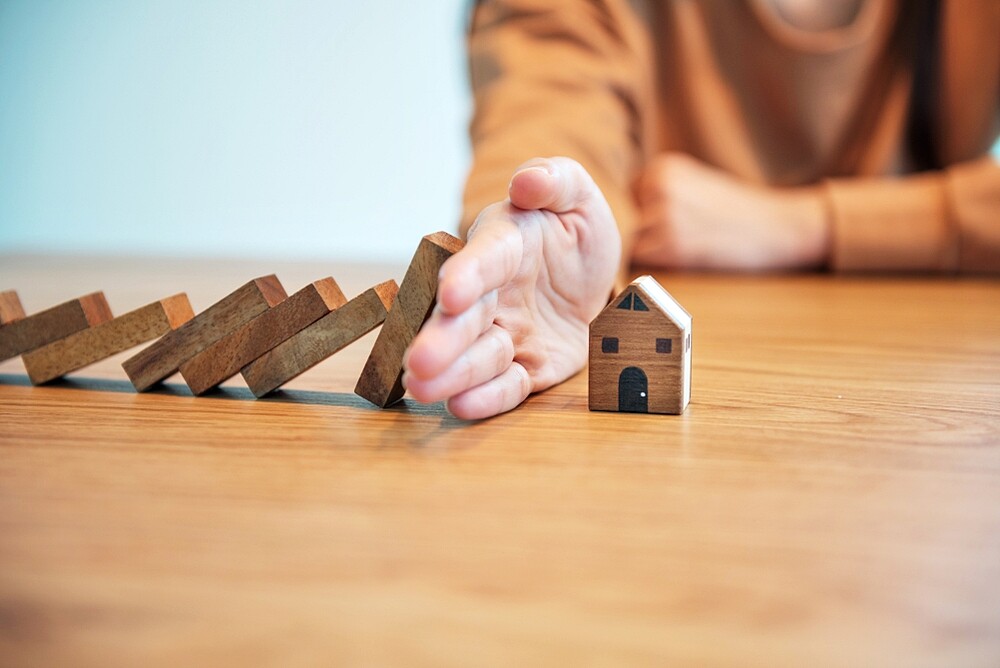If you want to pay attention to sustainability in the household, you don’t have to turn your life upside down. Because: Even small things can make big changes for the environment.
1. Give up standby mode
It’s only a small change in everyday life, but it can make a big difference in terms of sustainability: Put an end to the eternal standby mode, which is actually only meant for short breaks! The reason: Even in energy-saving mode, the devices continue to consume electricity uselessly. In order to take the devices off the mains, it is recommended to use power strips that can be switched off. As a rule of thumb: If the device is not used for more than an hour, it should be switched off completely.
2. Pay attention to the correct cleaning agent
Each year, approximately 220,000 tons of household detergent and 260,000 tons of dishwashing detergent are sold. Everything that goes down the drain pollutes the water. The choice of detergent and the right dosage are therefore extremely important for our environment. Make sure that these agents do not contain any substances that are harmful to the environment or to health. “With an all-purpose cleaner, a hand dishwashing detergent, a scouring milk and an acidic cleaner based on citric acid, you can clean the entire household,” is advised on the homepage of the German government.
3. Switch down the heating
Let’s be honest: As our rooms should be warm even in winter, we usually turn the heating to the stop. However, you should be aware that every degree less saves around six percent of heating energy. Turning the thermostat down from 24 to 20 degrees (ideal room temperature!) reduces energy consumption by 24 percent. And that’s not only good for the environment, but also for your wallet.
4. Throw away less food
One of the most important basic rules of a sustainable life is: Go shopping consciously and only put in the shopping basket what you actually consume. A study by the University of Stuttgart has found that Germans throw every eighth food item out of their fridge. This amounts to 82 kilograms per person per year; calculated for the Federal Republic of Germany, that makes a mountain of 6.7 million tons of waste.
5. Goodbye plastic bag
Instead of a plastic bag, you should use a cloth bag when you go shopping. Not only does it look better, it also makes you feel good. Even big fashion companies are now contributing to the plastic boycott – and only hand out plastic bags for a fee. By the way: You can also save on the material when buying fruit and vegetables, for example by taking a suitable net with you.
6. Dispose of waste correctly
In general, you should separate your garbage of course – but the most environmentally friendly garbage is the garbage that is not produced in the first place. So make sure you buy recyclable products and reusable instead of disposable products when you buy your stuff. Don’t throw anything away carelessly, but think about whether the old clothes or furniture might find a new owner after all. Keyword: old clothes collection.
7. Showering instead of bathing
Sure, there are seasons in which we like to get into the bathtub – especially when we have a cold. If you want to live and economize sustainably, you should still avoid bathing. The reason: we use around 140 litres of water for a full bath, and when showering about 20 litres per minute flow through the pipe. According to BUND, a four-person household can save more than 300 euros a year in energy and water costs if it does not take a bath.
8. Buy sustainable fashion
How quickly do we reach for a cheaply produced sweater without keeping in mind which materials were used under which circumstances. There are now a number of labels that specialise in clothing made under fair conditions and from natural materials. And this eco-fashion does not have to look eco, but can be quite modern and fashionable. The basic rule is: look at which manufacturer has where and how it is produced.
9. Dry laundry sparingly
Don’t worry! You don’t have to do without your beloved dryer just because drying with a clothespin is the most environmentally friendly solution. Nevertheless, you can minimize your energy consumption considerably if you choose the right dryer. For example, a heat pump dryer uses half as much energy as a condensation dryer. Because: the evaporation of water costs a lot of electricity. Incidentally, energy efficiency class A+++ has by far the lowest power consumption.
10. Sealing doors and windows
A lot of heat can escape through doors and windows – experts estimate that up to 27 percent of the energy used for heating is lost in this way. To prevent this, you should seal all doors and windows well. How do you notice that everything is tight? It’s simple: just hold a candle to the frame. If the light flickers, cold air can still enter from outside.

